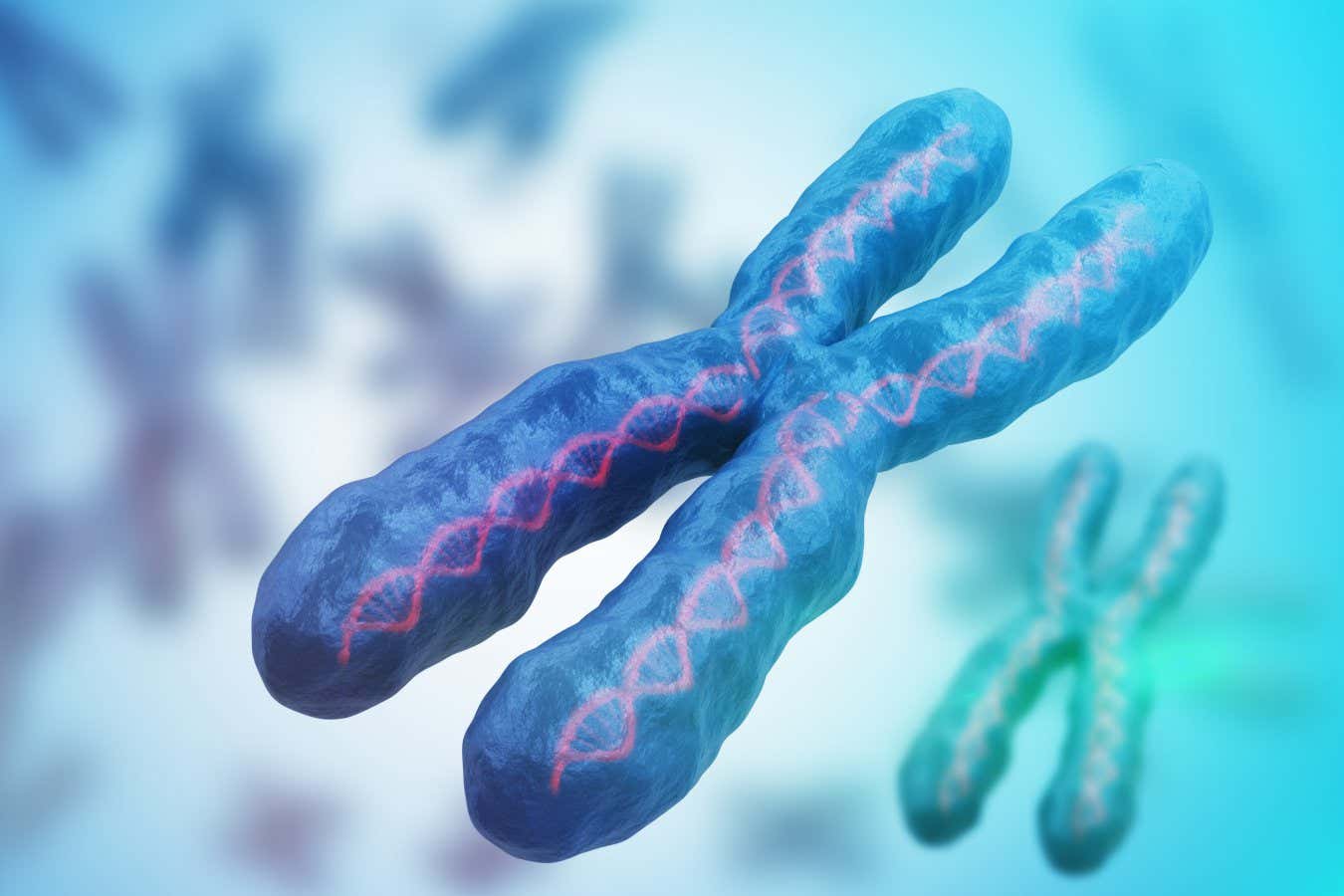The inactivation of one copy of the X chromosome in female mammals may start to fail as they get older, which may be why women have a higher risk of autoimmune conditions such as lupus
By Michael Le Page
3 May 2024
In female mammals, genes on one copy of the X chromosome are usually inactivated
vchal/Shutterstock
Female mammals have a higher risk of developing autoimmune conditions such as lupus because extra copies of genes that are supposed to be permanently turned off get reactivated as they grow older, a study of mice suggests.
The findings are likely to apply to all mammals, including humans, says Céline Morey at the Paris Cité University in France, and could explain why older women are more likely to develop conditions such as rheumatoid arthritis.
Read more
How to tell if your immune system is weak or strong
Advertisement
Whereas male mammals usually have one X and one Y chromosome, most female mammals have two copies of the X chromosome. If all the genes on both X chromosomes were active, females would get a double dose of the gene products compared with males.
Instead, soon after embryos start developing, most of the genes on one of the two copies of the X chromosome get turned off, a phenomenon known as X inactivation.
Morey and her colleagues set out to study this process by creating mice that lack one of the genes involved in X inactivation. This deletion doesn’t prevent X inactivation entirely – that would be fatal – but it does diminish its strength.
